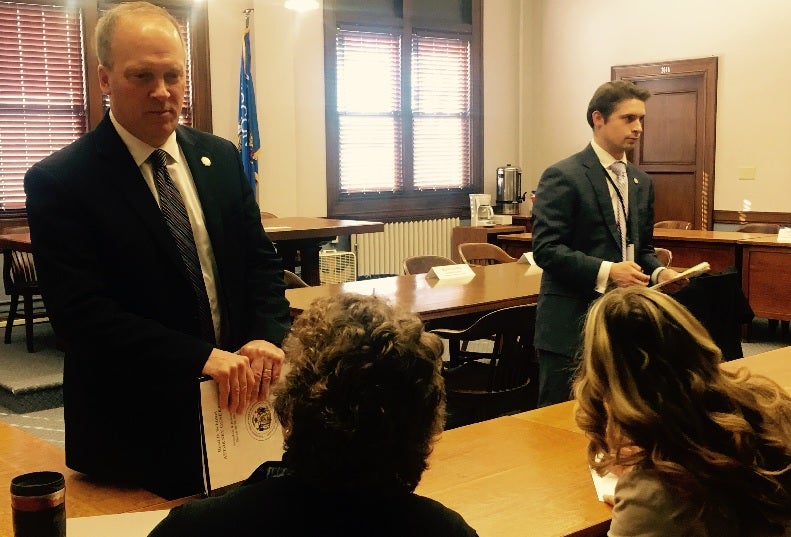Wisconsin’s attorney general has mixed feelings about President Donald Trump’s Initiative to Stop Opioid Abuse announced this week.
Trump’s plan would allow the U.S. Department of Justice to seek the death penalty, where appropriate, against traffickers of fentanyl and other opioids. State Attorney General Brad Schimel said that won’t stop drug abuse.
“As long as that demand exists, people are going to supply this,” Schimel said. “I make no bones about it. I’m a pro-life person and that also causes me to think that the death penalty is not an appropriate solution. We’ve got better ways.”
News with a little more humanity
WPR’s “Wisconsin Today” newsletter keeps you connected to the state you love without feeling overwhelmed. No paywall. No agenda. No corporate filter.
He added the death penalty can prove more costly than lifelong incarceration when factoring in the costs of legal challenges and appeals.
“It doesn’t give quick closure for the victims because instead of being done after one or maybe two levels of appeal there are many levels of appeal that goes on for years and years, sometimes decades,” he said.
Schimel would rather see expanded treatment resources. Trump’s plan does include expanding access to addiction treatment in states with a special emphasis on medication-assisted treatment.
“We’ve got to make sure there are enough treatment resources,” he said. “We’ve got to make sure there are enough prosecutors and law enforcement officers to catch the drug traffickers and lock them up. Right now, they just keep rolling. We bust one. They roll another one in.”
A bill that would have provided $4 million for 54 additional prosecutors statewide died in the state Senate this week. Schimel told police, prosecutors and community leaders at an Ashland County law enforcement roundtable he’s not surprised. However, he said it’s good that lawmakers are more aware of growing caseloads due to drug abuse across the state.
Trump’s opioid plan would also cut back prescription of opioid painkillers by one-third within three years. Schimel said the state has sought to address overprescribing through guidelines issued by Wisconsin’s medical examining board.
“By reducing the prescribing so that doctors don’t send you home with such a large supply and by having drug take-back programs like we have in Wisconsin where we’ve collected over 330,000 pounds of unused medication in the last three years, by having those kind of programs, we’ve reduced the painkillers that are available for diversion,” he said.
However, he said the prescribing guidelines still allow patients who are suffering to obtain the medication they need. In the first half of last year, 17.5 million fewer opioid doses were given out, according to figures from Wisconsin’s Prescription Drug Monitoring Program.
Wisconsin Public Radio, © Copyright 2025, Board of Regents of the University of Wisconsin System and Wisconsin Educational Communications Board.







